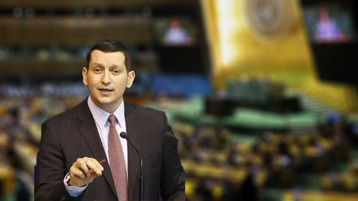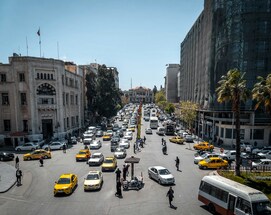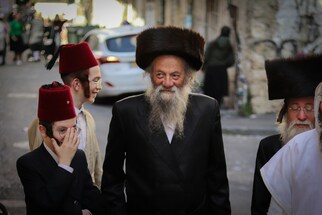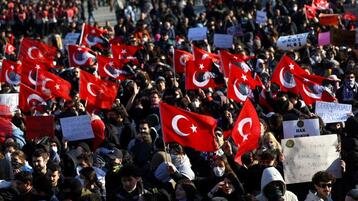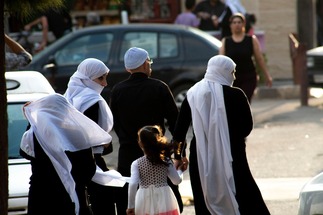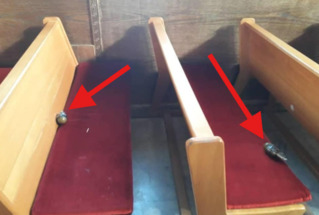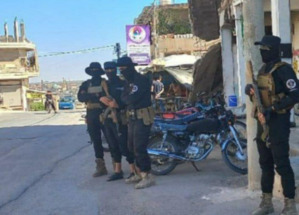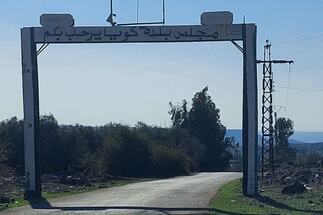-
Pope Francis visits Russian embassy to 'express his concern about the war'
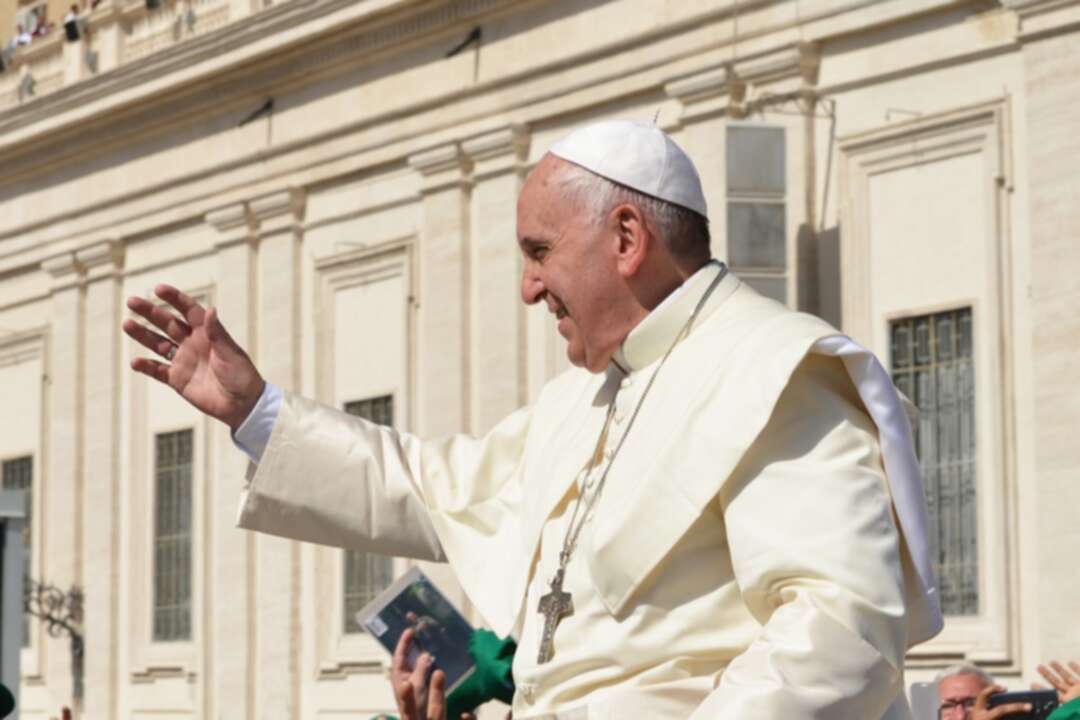
The Gazette reported, citing the Associated Press, Pope Francis went to the Russian Embassy on Friday to “express his concern about the war,” an extraordinary, hands-on papal gesture that came on the same day the Vatican announced he was canceling other upcoming events because of an “acute” flareup of knee pain.
Usually popes receive ambassadors and heads of state in the Vatican, and diplomatic protocol would have called for the Vatican foreign minister to summon the ambassador to him. For Francis, the Vatican head of state, to leave the city state and travel a short distance to the Russian embassy to the Holy See was a sign of his anger at Moscow’s invasion of Ukraine and his willingness to appeal personally for an end to it.
Vatican officials said they knew of no such previous papal initiative.
Vatican spokesman Matteo Bruni confirmed the visit. “The Holy See press office confirms that the pope went to the Russian Embassy to the Holy See on Via della Conciliazione, clearly to express his concern about the war. He was there for just over a half-hour.”
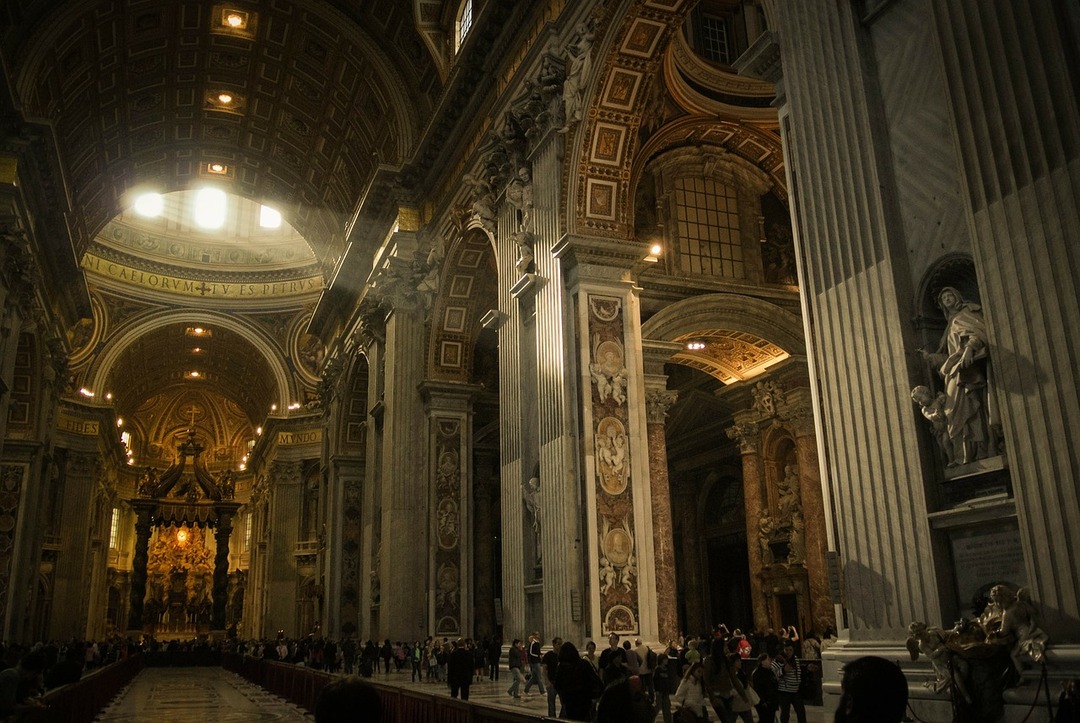
Francis has called for dialogue to end the conflict and has urged the faithful to set next Wednesday as a day of fasting and prayer for peace in Ukraine. But he has refrained from publicly calling out Russia, presumably for fear of antagonizing the Russian Orthodox Church.
Kabul evacuation was hindered by pleas from Jill Biden and the Pope
News of Francis' initiative came just after the Vatican announced he had canceled a scheduled Sunday visit to Florence and will not preside over Ash Wednesday commemorations next week because of a flareup of “acute” knee pain. The Vatican said the 85-year-old pope was canceling his participation in the events after his doctors prescribed a period of rest.
The pope, has long suffered from sciatica nerve pain that makes him walk with a pronounced limp, has suffered for several weeks for what he has said was an inflamed ligament in his right knee. He has cited the pain in explaining his limited mobility recently and decision to remain seated during events that would otherwise see him stand.
Francis had been due to travel to Florence for a half-day visit Sunday to address a meeting of Mediterranean bishops and mayors and to celebrate Mass. It would have been his first pastoral visit within Italy since the pandemic.
Pope Francis may visit Lebanon before end of this year
He was to have presided over Ash Wednesday commemorations, including a short procession, at a church outside the Vatican in the Aventine neighborhood of Rome. Francis had called for the faithful to set aside Ash Wednesday, the start of the solemn Lenten season, to fast and pray for peace in Ukraine.
The Argentine Jesuit enjoys generally good health, though he had 33 centimeters (13 inches) of his large intestine removed in July. Francis also had a part of one lung removed when he was a young man after a respiratory infection.
Despite the knee pain, the Vatican released Francis’ itinerary for an April 2-3 visit to Malta, making clear he plans to go ahead with his agenda.
Source: gazette
You May Also Like
Popular Posts
Caricature
BENEFIT AGM approves 10%...
- March 27, 2025
BENEFIT, the Kingdom’s innovator and leading company in Fintech and electronic financial transactions service, held its Annual General Meeting (AGM) at the company’s headquarters in the Seef District.
During the meeting, shareholders approved all items listed on the agenda, including the ratification of the minutes of the previous AGM held on 26 March 2024. The session reviewed and approved the Board’s Annual Report on the company’s activities and financial performance for the fiscal year ended 31 December 2024, and the shareholders expressed their satisfaction with the company’s operational and financial results during the reporting period.
The meeting also reviewed the Independent External Auditor’s Report on the company’s consolidated financial statements for the year ended 31 December 2024. Subsequently, the shareholders approved the audited financial statements for the fiscal year. Based on the Board’s recommendation, the shareholders approved the distribution of a cash dividend equivalent to 10% of the paid-up share capital.
Furthermore, the shareholders endorsed the allocation of a total amount of BD 172,500 as remuneration to the members of the Board for the year ended 31 December 2024, subject to prior clearance by related authorities.
The extension of the current composition of the Board was approved, which includes ten members and one CBB observer, for a further six-month term, expiring in September 2025, pending no objection from the CBB.
The meeting reviewed and approved the Corporate Governance Report for 2024, which affirmed the company’s full compliance with the corporate governance directives issued by the CBB and other applicable regulatory frameworks. The AGM absolved the Board Members of liability for any of their actions during the year ending on 31st December 2024, in accordance with the Commercial Companies Law.
In alignment with regulatory requirements, the session approved the reappointment of Ernst & Young (EY) as the company’s External Auditors for the fiscal year 2025, covering both the parent company and its subsidiaries—Sinnad and Bahrain FinTech Bay. The Board was authorised to determine the external auditors’ professional fees, subject to approval from the CBB, and the meeting concluded with a discussion of any additional issues as per Article (207) of the Commercial Companies Law.
Speaking on the company’s performance, Mr. Mohamed Al Bastaki, Chairman BENEFIT , stated: “In terms of the financial results for 2024, I am pleased to say that the year gone by has also been proved to be a success in delivering tangible results. Growth rate for 2024 was 19 per cent. Revenue for the year was BD 17 M (US$ 45.3 Million) and net profit was 2 Million ($ 5.3 Million).
Mr. Al Bastaki also announced that the Board had formally adopted a new three-year strategic roadmap to commence in 2025. The strategy encompasses a phased international expansion, optimisation of internal operations, enhanced revenue diversification, long-term sustainability initiatives, and the advancement of innovation and digital transformation initiatives across all service lines.
“I extend my sincere appreciation to the CBB for its continued support of BENEFIT and its pivotal role in fostering a stable and progressive regulatory environment for the Kingdom’s banking and financial sector—an environment that has significantly reinforced Bahrain’s standing as a leading financial hub in the region,” said Mr. Al Bastaki. “I would also like to thank our partner banks and valued customers for their trust, and our shareholders for their ongoing encouragement. The achievements of 2024 set a strong precedent, and I am confident they will serve as a foundation for yet another successful and impactful year ahead.”
Chief Executive of BENEFIT; Mr. Abdulwahed AlJanahi commented, “The year 2024 represented another pivotal chapter in BENEFIT ’s evolution. We achieved substantial progress in advancing our digital strategy across multiple sectors, while reinforcing our long-term commitment to the development of Bahrain’s financial services and payments landscape. Throughout the year, we remained firmly aligned with our objective of delivering measurable value to our shareholders, strategic partners, and customers. At the same time, we continued to play an active role in enabling Bahrain’s digital economy by introducing innovative solutions and service enhancements that directly address market needs and future opportunities.”
Mr. AlJanahi affirmed that BENEFIT has successfully developed a robust and well-integrated payment network that connects individuals and businesses across Bahrain, accelerating the adoption of emerging technologies in the banking and financial services sector and reinforcing Bahrain’s position as a growing fintech hub, and added, “Our achievements of the past year reflect a long-term vision to establish a resilient electronic payment infrastructure that supports the Kingdom’s digital economy. Key developments in 2024 included the implementation of central authentication for open banking via BENEFIT Pay”
Mr. AlJanahi concluded by thanking the Board for its strategic direction, the company’s staff for their continued dedication, and the Central Bank of Bahrain, member banks, and shareholders for their valuable partnership and confidence in the company’s long-term vision.
opinion
Report
ads
Newsletter
Subscribe to our mailing list to get the new updates!

